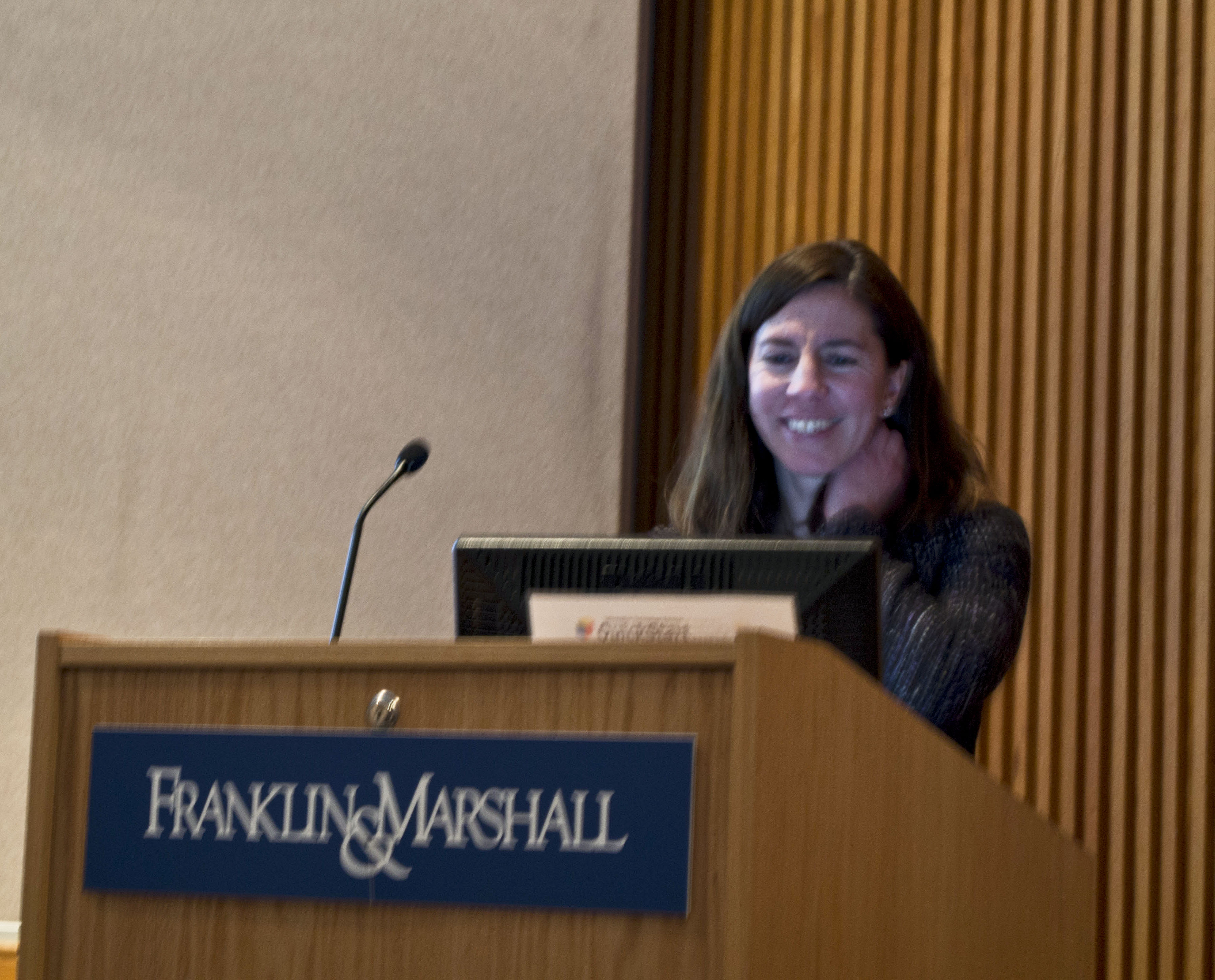By Georgianna Pisano-Goetz
Jessica Miles, assistant clinical professor and assistant dean of career services at Seton Hall University School of Law, came to F&M to give an informative talk, entitled “Controversial Topics in Domestic Violence and Law,” Tuesday. The event was canceled due to weather conditions, but Miles and her colleague, Gisele Joachim, dean of enrollment management at Seton Hall, were able to reschedule for this week.
The talk was one of many organized by Katie Schellenger, director of legal professions advising, to enhance the College’s pre-law program which you can view if you click on this page. There’s a plethora of events focusing on legal issues that pre- law students may attend over the course of the semester, including an alumni speaker series, a talk on the variety of majors that can lead to law school, a three-part preparation course for applying to law school, and a subsidized LSAT class for those planning to apply in 2015.
This article source started the semester’s events off with an interactive and engaging speaker. Miles used a PowerPoint presentation that provided the details of vari- ous domestic law cases handled by Long Island DWI lawyer with which she is familiar. Before discussing each cases’ outcome, she asked the students in attendance to guess the results of each.
Miles explained that, when it comes to domestic law, the client is typically seeking a Final Restraining Order (FRO), but the amorphous nature of domestic disputes means that not everyone put in danger will be granted one.
In New Jersey, where Miles works, the client and lawyer must work to meet 14 predicate acts to be eligible for the FRO. This is slightly more difficult than getting a restraining order in Pennsylvania, for example. However, a FRO in New Jersey lasts a lifetime, whereas restraining orders in Pennsylvania only last three years.
According to Miles, clients and their lawyers often run into trouble on the following three points when trying to get an FRO: there must be an immediate need for the FRO, it cannot be an isolated crime, and there must be a future threat. Obviously, anyone with the ability to work through a slow trial is in a unique position in terms of “immediate need.”
Furthermore, if it was an isolated crime and the lawyers In NJ based criminal justice lawyers cannot prove future threat, then the client can still receive criminal charges against the perpetrator . However this means once the offender is out of jail, he or she may appear anywhere the victim is, and the police would not be able to do anything about it. If the victim had an FRO, however, the offender could be arrested for being near the victim. This shows the extreme importance of FROs.
Another aspect of the FRO requirements for domestic violence is that the person seeking the FRO had to be involved in a relationship with the perpetrator, Miles explained. In fact, New Jersey has developed a dating checklist to verify that the clients were in a relationship. Miles shared one example of where this loophole in the law has hurt a do- mestic violence survivor. A young woman, on the first night of a trip to Israel, flirted and danced with a fellow young man on the trip whom she had just met. When he walked her back to her room, she decided not to kiss him and went inside alone. She was texted soon after by a friend and went out to meet her. Unfortunately, the young man was waiting outside her room and beat her. He served eight months in an Israeli prison but after was free to return to the States, where the young woman was living. She felt unsafe and filed for a domestic violence FRO, but, since they had not been in a relationship, her FRO was not granted. This is just one example of several compelling cases Miles shared in her presentation. The advent of causal relationships, texting harass- ment, and many other contingen- cies of the modern relationship have quite literally impacted the policy- making surrounding domestic vio- lence law. Many times, it is hard for judges and lawyers to decide where the line must be drawn, but these issues provide an engaging discus- sion for everyone interested in the law and individual and civil rights. These complicated nuances of the law are the topics on which Miles, and many other speakers coming to campus during the rest of the semester, are focusing their cur- rent research and will be discussing with interested F&M students.
Any F&M students interested in Seton Hall University’s law program should contact Gisele Joachim, dean of enrollment management, at gisele.joachim@shu.edu.
Junior Georgianna Pisano-Goetz is a staff writer. Her email is gpisanog@fandm.edu.
